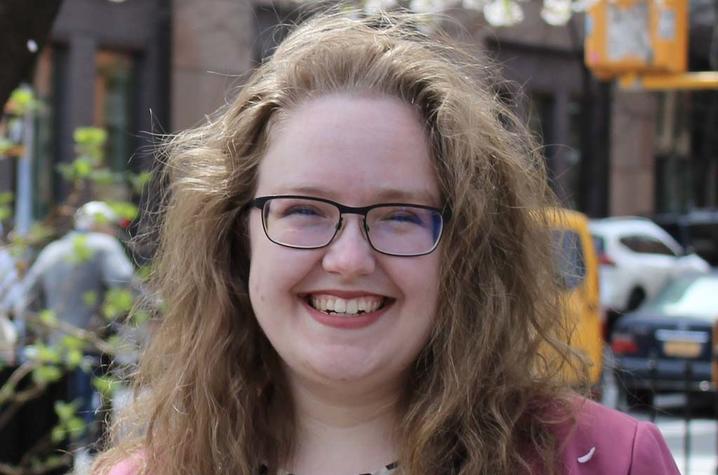UK political scientist explores the impact of social media on politics
LEXINGTON, Ky. (Oct. 21, 2024) — In an era where political discourse often unfolds online, a University of Kentucky researcher is examining the evolving communication strategies used in American politics with a focus on social media.
Maggie Macdonald, Ph.D., assistant professor in the Department of Political Science in the UK College of Arts and Sciences, studies elite political behavior in the United States. Most of her work has concentrated around congressional campaigns and how they use social media to achieve their electoral goals.
“I started graduate school in 2015 and decided to study Congress and Twitter,” said Macdonald. “I developed a theory that the use of social media is not for the voters but instead politicians use it to reach several elite audiences simultaneously.”
Macdonald points out that various political platforms attract different audiences, noting that Facebook typically appeals to an older demographic compared to TikTok or Instagram. Each platform provides a unique space for politicians to convey different messages.
“Across the platforms, politicians have incentives to get as much attention as possible, maybe go viral,” said Macdonald. “The sort of messages that enable them to go viral are not necessarily ones that lend themselves to compromise and boring policy takes.”
Macdonald said that social media can sometimes give politicians incentives to be more partisan and negative to gain likes, media coverage and to raise money. She says this can create a type of campaign that is more focused on media attention and gaining a national profile.
Before accepting anything as reliable and to encourage more critical thinking, Macdonald suggests the following tips to keep in mind when viewing political content online:
- Who is posting the content?
- Is it a news organization?
- Is it an influencer?
- Is it an organization that has been fact checked?
As a social scientist, Macdonald said she sees patterns of news and political behavior and advises people to remain curious. If something falls perfectly in line with your political views, she recommends digging deeper into the source and some of the motivations that source may have.
“To some extent, online is not the real world. People can post but that does not mean that they will vote, attend a rally, contribute or put up a yard sign. But at the same time, our media environment is very fragmented. It is relatively easy to only consume media and social media posts that is in line with your political view and that does shape our offline political environment.”
Watch the video above to learn more about Macdonald and her work.


As the state’s flagship, land-grant institution, the University of Kentucky exists to advance the Commonwealth. We do that by preparing the next generation of leaders — placing students at the heart of everything we do — and transforming the lives of Kentuckians through education, research and creative work, service and health care. We pride ourselves on being a catalyst for breakthroughs and a force for healing, a place where ingenuity unfolds. It's all made possible by our people — visionaries, disruptors and pioneers — who make up 200 academic programs, a $476.5 million research and development enterprise and a world-class medical center, all on one campus.




